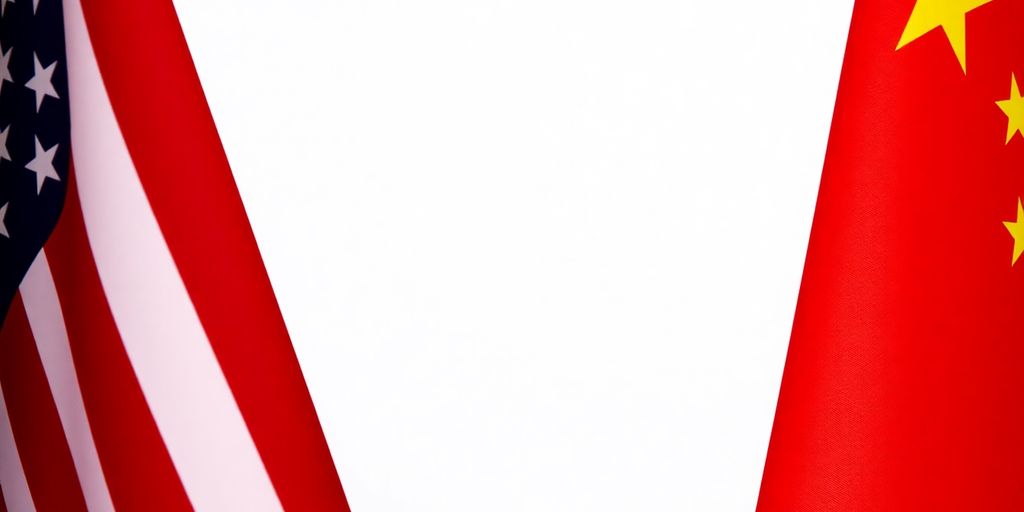Business
US and China Set to Engage in Crucial Trade Talks in Geneva

In a significant move towards easing trade tensions, U.S. Treasury Secretary Scott Bessent and chief trade negotiator Jamieson Greer are scheduled to meet with China’s economic chief He Lifeng in Geneva this Saturday. This meeting marks a potential thaw in the ongoing trade war that has disrupted global markets and economies.
Key Takeaways
- U.S. and China officials to meet in Geneva for trade discussions.
- Talks aim to address high tariffs and trade barriers.
- Stock markets react positively to the news of the meeting.
- China signals willingness to negotiate after weeks of escalating tensions.
Background of the Trade War
The trade conflict between the United States and China has escalated over the past few years, with tariffs on goods reaching unprecedented levels. The U.S. has imposed tariffs exceeding 100% on various Chinese imports, which U.S. Treasury Secretary Bessent described as akin to a trade embargo. This situation has led to significant disruptions in supply chains and heightened fears of a global economic downturn.
The Upcoming Talks
The Geneva meeting is expected to focus on several critical issues:
- Reduction of Tariffs: Discussions will likely center around lowering the extensive tariffs currently in place.
- Specific Product Duties: Negotiators will address tariffs on particular goods that have been heavily impacted.
- Export Controls: The talks may also cover U.S. export controls that have affected trade dynamics.
- De Minimis Exemptions: The U.S. decision to end exemptions on low-value imports will be a topic of discussion.
Market Reactions
Following the announcement of the Geneva talks, U.S. equity index futures rose, indicating investor optimism about a potential resolution. Similarly, stock markets in China and Hong Kong experienced gains during Asian trading hours, reflecting a positive outlook on the negotiations.
China’s Position
China’s willingness to engage in talks represents a shift from its previous stance, where it refused to negotiate unless the U.S. lifted its tariffs. A spokesperson from China’s commerce ministry confirmed the meeting, emphasizing the need to consider global expectations and the interests of both nations. This change in approach suggests that China is keen to stabilize its economy, which has been adversely affected by the tariffs.
Economic Implications
The stakes are high for both economies. Analysts have warned that the trade war could lead to significant job losses in China, with estimates suggesting up to 16 million jobs could be at risk. In response, China’s central bank has announced new monetary stimulus measures, including rate cuts and liquidity injections, to mitigate the economic impact of the tariffs.
Conclusion
As the U.S. and China prepare for their crucial trade talks in Geneva, the world watches closely. The outcome of these discussions could have far-reaching implications for global trade, economic stability, and the future of U.S.-China relations. Both sides have expressed a shared interest in finding a sustainable solution, but the path forward remains uncertain. The negotiations will be a test of diplomacy and economic strategy in a rapidly changing global landscape.
Sources
-

 Business6 days ago
Business6 days agoWall Street Rallies as Strong Jobs Report Fuels Optimism
-

 Business5 days ago
Business5 days agoS&P 500 Achieves Historic Winning Streak Amid Easing Trade Tensions
-

 Government5 days ago
Government5 days agoSupreme Court Case Martin V. USA: A Landmark Moment for Government Accountability in Wrong-House Raids
-

 Civil Rights7 days ago
Civil Rights7 days agoUS Government Under Fire for Wrong-House Raids: Accountability at Stake
-

 Health & Fitness4 days ago
Health & Fitness4 days agoBudget Cuts Slash Vital Health-Tracking Programs in the U.S.
-

 Business3 days ago
Business3 days agoUS Stock Market Soars on Positive Jobs Data and Trade Optimism
-

 Business4 days ago
Business4 days agoUS Stock Market Soars as Jobs Report Surprises and Trade Tensions Ease
-

 Crime5 days ago
Crime5 days agoU.S. Treasury Takes Aim at Major Mexican Cartel Linked to Fentanyl Trade













